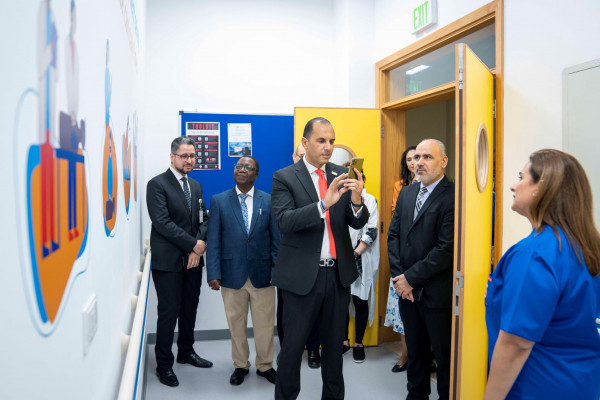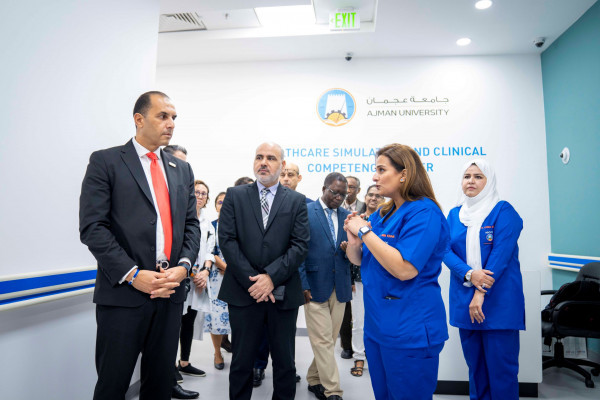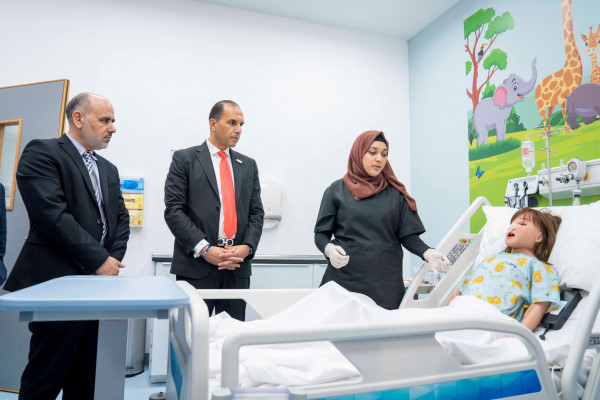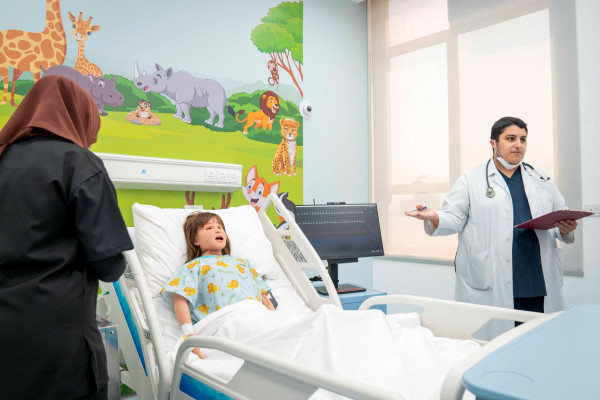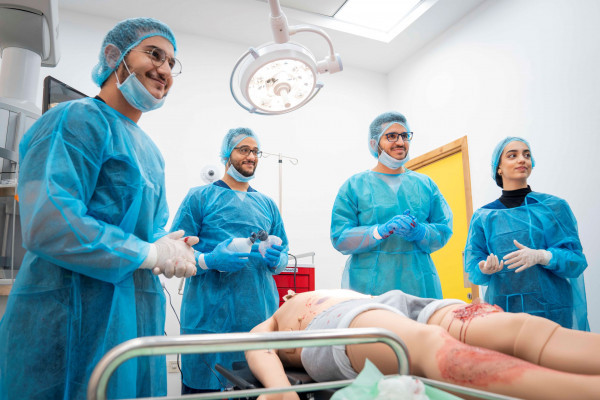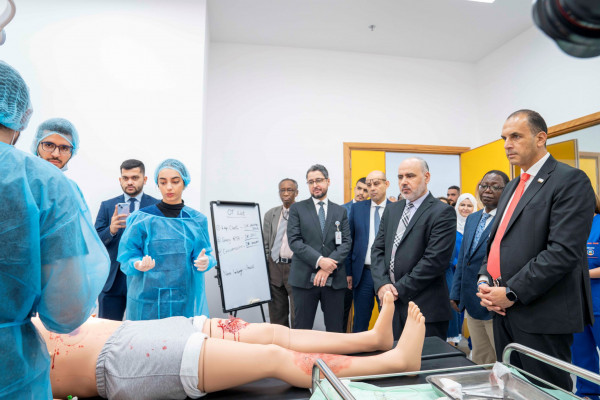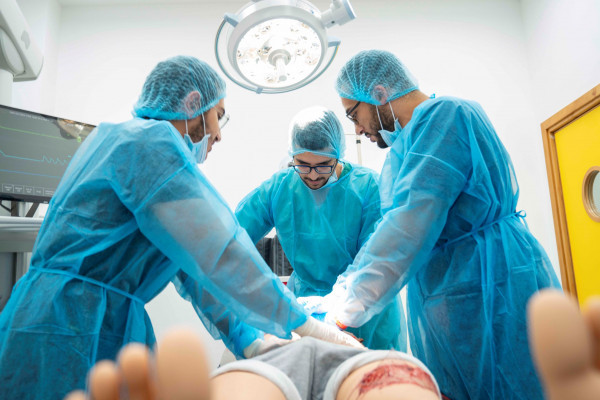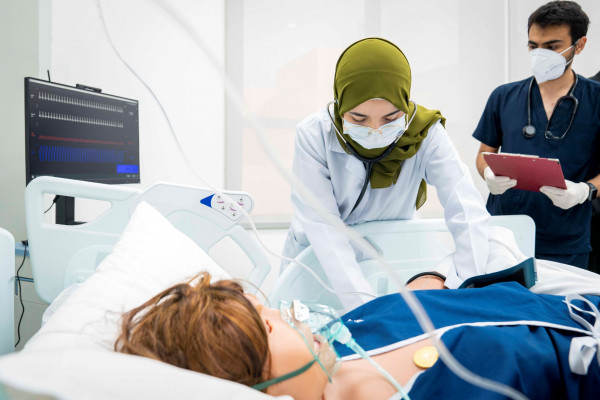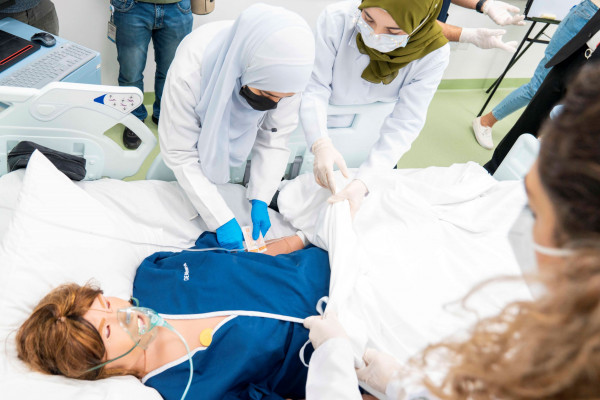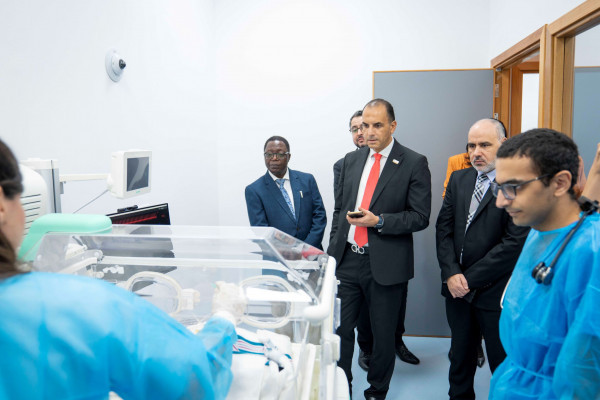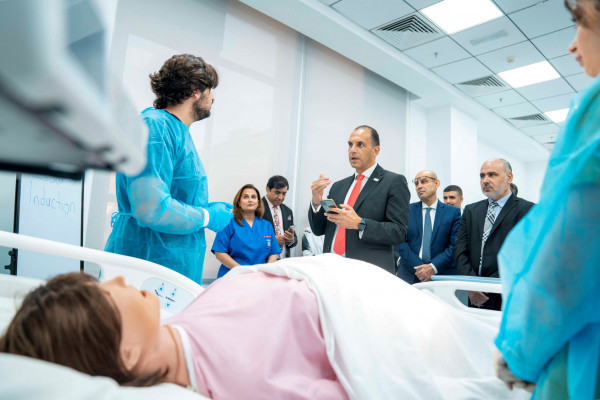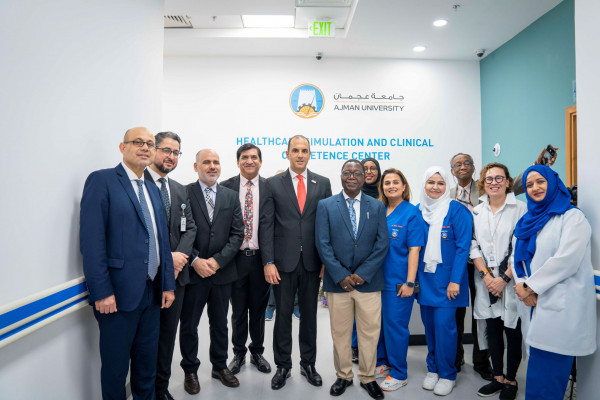Ajman University Inaugurates Healthcare Simulation and Clinical Competence Center
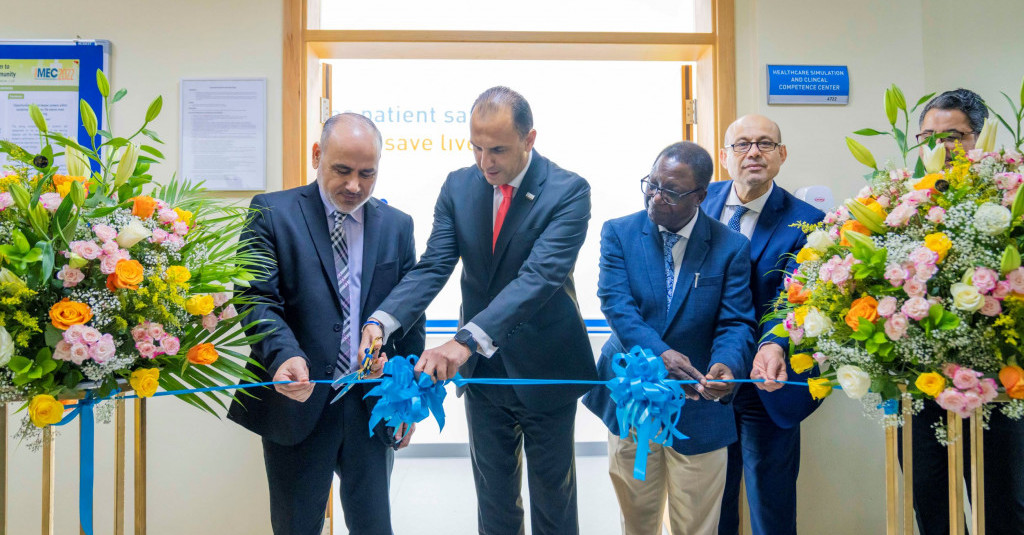
The College of Medicine at Ajman University (AU) has launched a Healthcare Simulation and Clinical Competence Center (HSCCC), doubling the number of physicians, nurses and students who will be able to practice their skills in a state-of-the-art learning environment. The event was inaugurated by Dr. Karim Seghir, Chancellor of AU in the presence of Dr. Khaled Assaleh, Vice Chancellor for Academic Affairs; Dr. Solomon Senok, Dean of the College of Medicine and number of other faculty members representing the college.
The new 220 square meter center, located in the College of Medicine, aims to be the most advanced center of excellence in clinical competency development in the region.
Through its genuine hospital-like setting, HSCCC, aims to give healthcare professionals and students an immersive clinical learning experience.
Students can practice and advance their clinical skills without any risk of harming actual patients in the eight-room setup that includes Maternity suite, Neonatal ICU, Pediatric ICU, Adult ICU, Operation Theater and Scrub zone. Each simulation zone features its own control room for running and supervising simulation scenarios, equipped with high-fidelity human patient simulators and hospital-grade tools and equipment.
The center is dedicated to serving four main purposes: providing simulation-based education, preparing students for clinical competency assessment, nurturing a culture of research and integrating health systems to facilitate patient safety.
HSCCC will allow current and future health care professionals the chance to prepare for real life scenarios and rehearse new medical procedures in a high-impact and low-risk clinical setting.
Dr. Erum Khan, Head of the HSCCC said: “Two of the most significant benefits of clinical simulation are the opportunities it provides for an interprofessional team training and the video assisted feedback. This allows learners to collaborate with each other as high performing teams using effective communication and clinical skills with an advantage to reflect on their performance, discuss their clinical reasoning, and the diagnostic and management approach with their team members under the expert guidance of their facilitator.”
